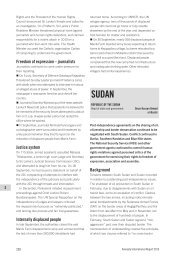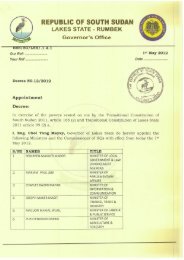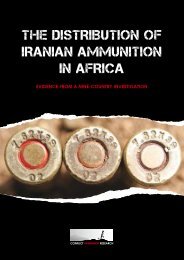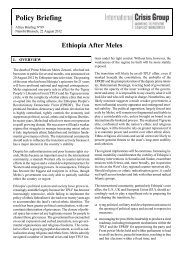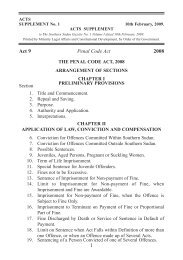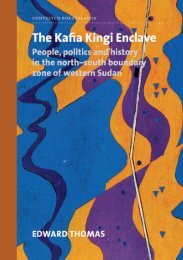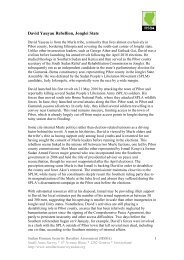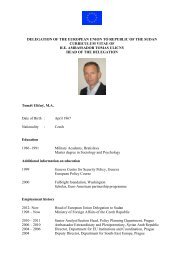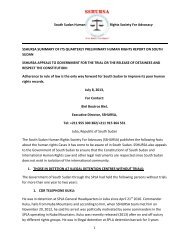THE SUDANESE HUMAN RIGHTS QUARTERLY - Sudan Tribune
THE SUDANESE HUMAN RIGHTS QUARTERLY - Sudan Tribune
THE SUDANESE HUMAN RIGHTS QUARTERLY - Sudan Tribune
You also want an ePaper? Increase the reach of your titles
YUMPU automatically turns print PDFs into web optimized ePapers that Google loves.
to oil revenue shortfalls. Development funding is a key component forCPA implementation and poverty reduction has been volatile and heavilyconcentrated in a handful of large endeavors.”The WB evaluative document concluded in the fact that, “Notwithstandingongoing efforts by the authorities, public financial managementsystems in <strong>Sudan</strong> are generally weak.”Commentaries by the QuarterlyThe WB heart-breaking evaluation of the <strong>Sudan</strong> public expendituresmust not pass unwatched.The government’s fire walls around the oil deals have aroused continuousinquiries in the National Parliament to no avail. But the oil contributionwith a fluctuating 45% average since 2000 should never blur the factthat the revenue pumped into government hands by the tax-payers, individualsor companies, for high taxation, high customs, and low salaries(if ever paid) to the working force is a major component of the budget,despite the disproportional spending on education, health, agriculturalcompensations, or any income-generating projects to alleviate poverty inthe marginal regions.Oil deals are the state leverage a totalitarian regime would never surrender.And most likely, the NIF/NCP regime would step down with alloil secrets tightly kept in its own hands. China and the Asian shareholdersQatar, Pakistan, Malaysia, and India, nonetheless, are held accountablebefore the <strong>Sudan</strong>ese for the transactions and secretive commissions of<strong>Sudan</strong> oil with the NIF/NCP rulers, besides the unaudited funds of thepresidency.The Quarterly believes as a commentary on the WB Report that the1986-89 elected government was destined to face out many of the problemsinherited from the Nimeiri regime (1969-85). Little wonder, the partisansingle party presidential system of the Brotherhood totalitarian regimereproduced the same crises in public spending: negligible funds forthe basic needs pauperizing the bulk of the poor farmers, workers, andemployees of the State versus partisan expenditures and abuses of thetreasury to fatten the ruling elite.32<strong>THE</strong> <strong>SUDANESE</strong> <strong>HUMAN</strong> <strong>RIGHTS</strong> <strong>QUARTERLY</strong>An ad hoc publication issued by the <strong>Sudan</strong> Human Rights Organization - Cairo



